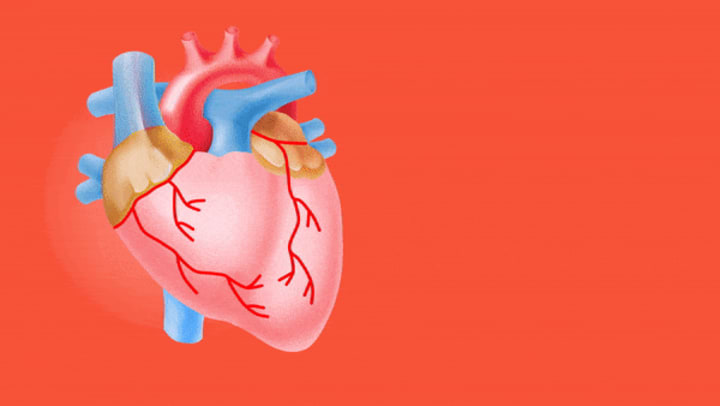[WARNING] Harvard's Dietary Guidelines Could Kill You. ⚠️
Open your eyes.

Sugar is a killer. It's common knowledge. Or so I thought, until I read these Harvard Medical School dietary guidelines, calling for up to 175 grams of simple sugars a day.
That's equivalent to 46 McDonald's packets of sugar, which fills a whole coffee cup. Imagine eating that, every. single. day.
Why (Excess) Sugar is Bad For You
To avoid strawmen in the comments, when I talk about sugar in this article, I'm talking about excess sugar, not the 2.9 grams in a carrot. As you'll see, however, you don't need to consume any sugar.
Sugar can turn into fat in the liver.
The liver is an amazing organ.
It's our glucose reservoir, keeping our blood sugar constant, so we have steady, lasting energy. A person weighing 70 kilograms needs only 4 grams of circulating glucose - and they don't need to eat any carbs at all to meet that requirement. The liver can manufacture glucose via gluconeogenesis, using the amino acids we consume.
The liver can store around 100 grams of glycogen, which can be turned into glucose. If you're not strenuously exercising to use up your reserves, but you still consume more sugar, it creates a fatty buildup instead, leading to fatty liver disease. About one-quarter of the world has it.
Sugar can cause heart disease and stroke.
Sugar creates an insulin response in your bloodstream. Too much insulin inflames arterial walls, making them thick and stiff, damaging your heart and leading to heart failure, heart attacks, and strokes.

Sugar can cause Type II diabetes.
When you eat too much sugar, your body fails to generate insulin normally. Your overworked pancreas breaks down, causing blood sugar levels to rise and leading to type 2 diabetes.
Sugar worsens sleep quality.
A study on 100 university students "concluded that poor sleep quality was significantly related to higher added sugar intake."
People with worse sleep are more depressed and have lower quality of life.

Sugar destroys your teeth.
95% of Filipino children have tooth decay. Why? Sugar. Without sugar, you won't develop tooth decay.
Sugar feeds harmful bacteria in your mouth, removing minerals from your tooth enamel and leading to decay. The symptoms include a toothache, pain when chewing, and greater sensitivity.

Sugar makes you depressed and anxious.
Sugar increases the risk of depression and anxiety, for many reasons.
First off, sugar drains the B vitamins we need to sustain a positive mood. Sugar also affects the thyroid, and thyroid hormones have a big impact on our temperature, metabolism, growth, and more.
Moreover, excess sugar can increase irritability. The initial spike in blood glucose upon consuming sugar is followed by a crash, worsening our energy and mood.

Sugar worsens your skin.
Sugar stiffens our skin and reduces elasticity. Sugar can also lead to inflammatory skin diseases, acne, and even sagging of the neck.

Sugar ruins your sex life.
Sugar is a major cause of erectile dysfunction and low libido. Sugar is even linked to lower fertility.
Just stop
While sugar is a complex clusterbomb wreaking havoc on all areas of your life, the solution is quite simple: Minimize sugar and remove added sugars entirely.
You don't have to wait until 2021 or a serious health scare to take action. Now is the best time to start.
About the Creator
Enjoyed the story? Support the Creator.
Subscribe for free to receive all their stories in your feed. You could also pledge your support or give them a one-off tip, letting them know you appreciate their work.






Comments
There are no comments for this story
Be the first to respond and start the conversation.